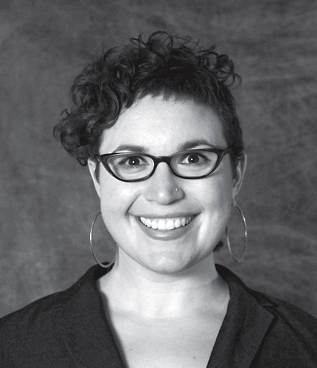
I’ve always told Adam we’ll have to shut this site down when the mainstream media begin doing their job. Well, here’s a big opening, involving the Jewish community. Mark Oppenheimer’s “Beliefs” column in the New York Times profiles a number of Jewish-observant anti-Zionists, in very positive terms. All are sympathetic or supportive of the boycott, divestment, sanctions movement (BDS).
Oppenheimer observes, “while there have always been anti- or non-Zionist Jews, today they cluster on the less observant end of Judaism, among secular or religiously liberal Jews.” But evidently these religious folks count more, because Zionism is (my contention) a religious ideology.
The Times piece begins with Charles Manekin, whose site is the Magnes Zionist: “his Orthodox faith calls him to take stands against Israel.” Manekin lives part of the year in Jerusalem. You’d think that the Jerusalem bureau of the Times would have gotten to him a long time ago. No, they’re locked down in the conventional pro-Israel perspective of the Jewish community, echoing the Israeli government’s view that the BDS movement is anti-Semitic.
Oppenheimer says the trend has brought strains in Jewish families, with Jewish Voice for Peace rabbi Alissa Wise:
Alissa Wise, 34, grew up in Cincinnati, in what she calls a “modern Orthodox or Conservative kind of background, a very right-wing Zionist background.” In 1999, she arrived at Hebrew University in Jerusalem. On her first day of classes, there was a pro-Palestinian rally on campus…
Today, Rabbi Wise works for Jewish Voice for Peace, a group that endorses some boycotts against Israel. Her views make her a minority in her family.
“I still believe the way I believe,” said her father, Ron, who works for Osem, an Israeli food company. “I am open to how she believes, and I listen to her.”
Good historical background:
Daniel Boyarin, who teaches Talmud at the University of California, Berkeley, attended Orthodox synagogues for 30 years. He believes that Zionism was always flawed.
“The very concept of a state defined as being for one people was deeply problematic and inevitably going to lead to a moral and political disaster,” said Professor Boyarin. “Which I think it has.”
Professor Boyarin, 67, is still observant, but he has dropped out of synagogue life. “I have been so disturbed by the political discourse,” he said, “that I felt that I couldn’t participate.”
Skepticism toward Zionism used to be common. Before World War II, Reform Jews tended to believe that they had found a home in the United States, and that Zionism could be seen as a form of dual loyalty. Orthodox Jews generally believed, theologically, that a state of Israel would have to wait for the Messiah’s arrival (a view some ultra-Orthodox Jews still hold). In the 1930s and ’40s, the persecution of European Jews turned many American Jews into Zionists. Major organizations, like the American Jewish Committee and Hillel, the Jewish campus group, turned toward political Zionism after the war….
Then there’s a leading activist, Corey Robin the Brooklyn college scholar:
Corey Robin, 46, a regular at a Conservative synagogue in Brooklyn, writes a blog about his opposition to Israeli policy and his support for the B.D.S. movement. “There are lots of ways to be Jewish, but worshiping a heavily militarized state seems like a bit of a comedown from our past,” Professor Robin, who teaches political science at Brooklyn College, said in an email.
He said that he tries not to get into arguments with friends, but he has become very “vocal and visible” in his writings. In response to such views, Professor Robin is often accused of despising Judaism….
“I love being Jewish. I just don’t love the state of Israel.”


Charles Manekin isn’t “anti-Zionist,” strictly speaking. He’s a cultural Zionist and is anti-POLITICAL Zionism. Which is a-ok by me. Not that it matters that much what’s a-ok by me. His writings on his blog are some of the most ethical and universalist I’ve ever read on the subject.
The real tipping point will come when the N.Y.T profiles gentiles such as myself without suggesting our motives are tainted with ‘subconscious antisemitism.”
But I suppose hell really will become chilly before that happens.
Logically messy: Oppenheimer observes, “while there have always been anti- or non-Zionist Jews, today they cluster on the less observant end of Judaism, among secular or religiously liberal Jews.” But evidently these religious folks count more, because Zionism is (my contention) a religious ideology.
These folks count more because they are outliers, atypical for antiZionists.
Is Zionism a religious ideology? Zionism is a response to Jewishness and Jewishness in its purest form is called Judaism, a religious ideology. So Zionism is a response to a religious ideology.
Why does one need to respond to Jewishness or Judaism? Well for Jews of a certain age, history demanded a response. Now that an interval has passed since the hurban, history no longer demands a response in the same way that it did in that first phase. So now only those Jews who are raised with some religious education find a need to respond to their Jewishness. (Alternately some Jews who are raised without religion are curious as to their roots and their religious roots and then they too need to respond to their religion, not due to their upbringing but due to some internal need.)
Every rule has its exception.
Also, there is one thing to do a profile in an apolitical setting and quite another to let that perspective be a natural part of the discussion/news cycle when it really matters(instead of smearing them as a bunch of Nazi-sympathizers like Rudoren tried). And so far on that point: nil.
Anti-zionist Jews are as non-existent to the Times as they are to the ultra-orthodox.